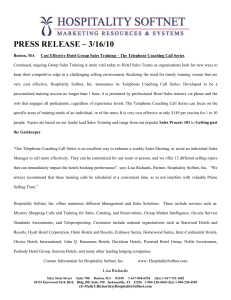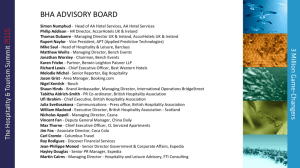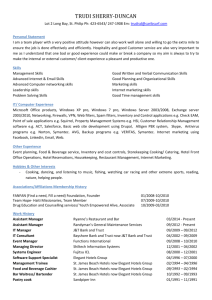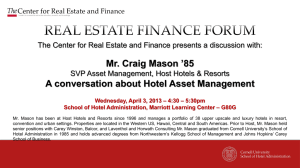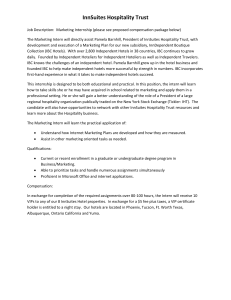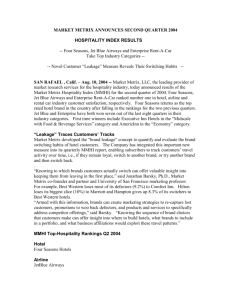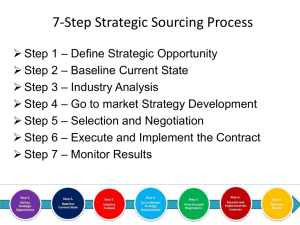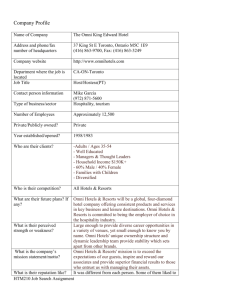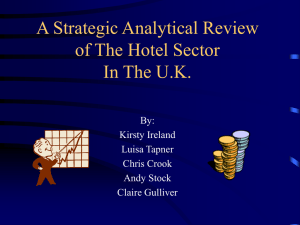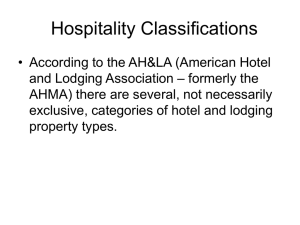Dr. Karla Boluk
advertisement
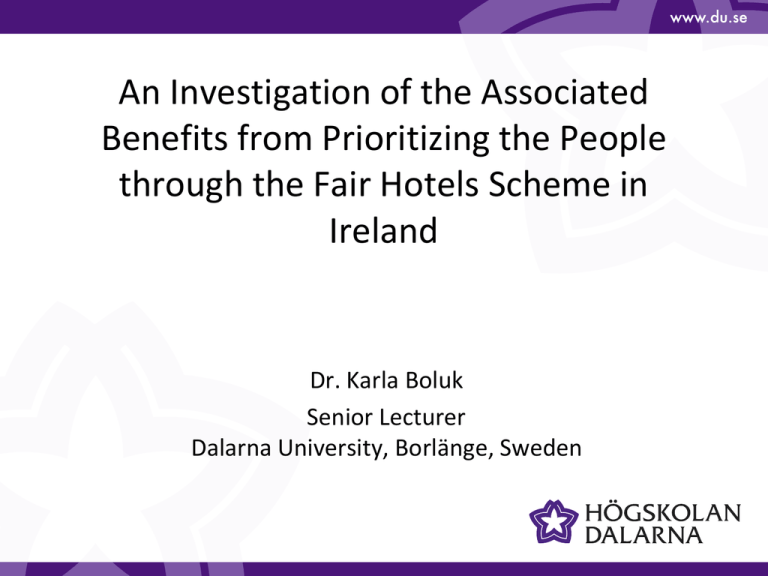
An Investigation of the Associated Benefits from Prioritizing the People through the Fair Hotels Scheme in Ireland Dr. Karla Boluk Senior Lecturer Dalarna University, Borlänge, Sweden Introduction • Tourism: significant industry for Ireland (Deegan 2010). • Current economy: stimulated discussions on smart economy. • Innovation: central focus should be simple instead of ‘big light bulb ideas’ (Pender 2009). Hospitality Sector in Ireland • Hospitality working environments heavily criticized. • Stressful working environment due to: • an expectation to work long and unsociable hours, • an expectation for compliance, • constant and close contact with employees and customers. • Innovation: general well-being of hospitality staff. Fair Hotels Ireland • Implementation of CSR through the Fair Hotels Ireland scheme. • Hotel Industry significantly affected with the onset of the recession. • Fair Hotels implemented in 2010 by Irish Union SIPTU. CSR • The CSR firm should strive to make a profit, obey the law, be ethical and be a good corporate citizen (Carroll 1991:43). • ‘Triple P Bottom Line concept’ (profit, people, planet). • Evidence suggests that CSR can lead to profit (e.g., Moore & Robson 2002). • Distinction between the ‘said’ and ‘saying’. Empowerment: Dual Intentions • Several reasons to support a mechanism which caters to the improved well-being of hospitality staff. • Empowerment: a way for management to share the decision making power. • “Empowerment is bounded by the bottom line” (Lashley & McGoldrick, 1994:26). Research Aim • Aim: Investigate the Fair Hotels scheme & explore its potential in creating social cohesion which may then influence the economic and social progress in both theory and praxis. • Qualitative approach used content analysis used to explore the meanings. • 10 semi-structured interviews carried out with managers of Fair Hotels. Results: Targeting Business • Most managers shared an expectation that the scheme would be supported by other union members not only within the hotel sector. • Manager 1: ‘we were delighted when we confirmed three large union conferences for 2011 and 2012. • Manager 4: ‘this is an excellent new initiative and our hotel has gotten on board with the hope of securing more business for the hotel’. Results: Value Creation • Other organizations in Ireland have endorsed the scheme and demonstrated their support. • Manager 8: ‘we have received quite a number of leads and enquiries and we received a conference from Fairtrade late last year’. • Manager 9: ‘we have made it on the map on the Fair Hotels website and our hotel is also advertised in their brochures’. • Not reaching mainstream clients yet. Results: Benefits for Employees • Manager 10: ‘although I haven’t noticed any changes to our employees attitudes I think that when the first large union conference is underway here in July 2011 more employees might take more notice of what it is all about and look into it’. • Manager 4: ‘all the information in relation to Fair Hotels is displayed on the canteen notice board’. Conclusion • McIntosh et al. (1998) states that being socially responsible is a concern connected to the rationale that businesses are more likely to do well in a flourishing society than one that is falling apart. • Fair Hotels: a proposition for Hotels to reconsider ways of selling their product and/or services. • Unclear if the scheme has created any direct improvements to the well-being of staff.

